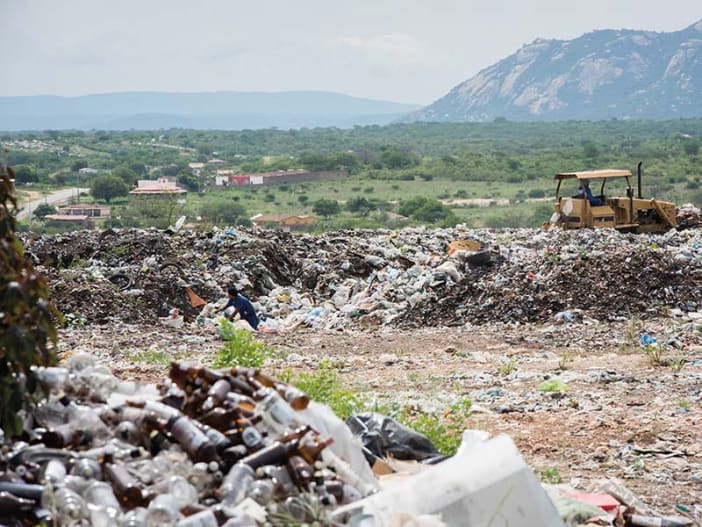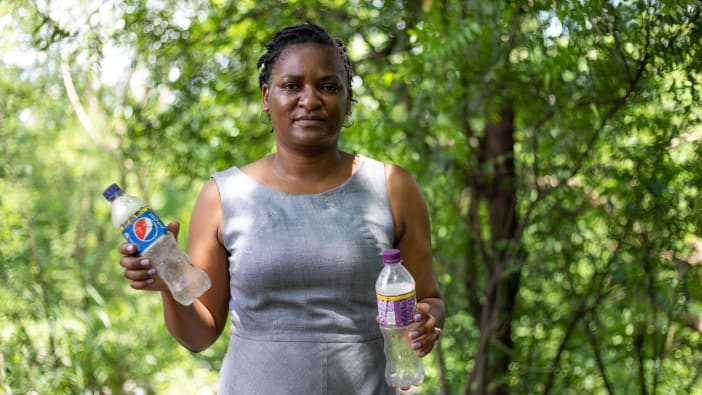A movement supported by Tearfund in Brazil, the Sertão Christian Environmental Network, mobilised Imaculada's local evangelical church to address local environmental issues. The church members visited their city’s dumpsite and participated in Tearfund’s training and meetings about waste management in cities. Then the church members identified Imaculada's waste management problem as one they wanted to address through local advocacy.
As a result of this sensitisation and training, the local church created the Sustainable City project. This project educated the community members about how to sort their household waste to prevent more waste from being sent to the open-air dump. Alongside this, church members and Tearfund staff also met with local government officials, including the prosecutor of the Public Ministry of Paraíba, to ask them to more efficiently solve the city’s waste management problem. They then monitored the government following their meetings to ensure accountability.
This successful advocacy by the church has resulted in the local government signing an agreement with the city of Piancó to send all of the city’s waste to a sanitary landfill. Now the household waste is directed to the proper place, the sanitary landfill, and the waste has undergone all the necessary and proper disposal processes, which minimise the environmental impacts on the people and the environment.








